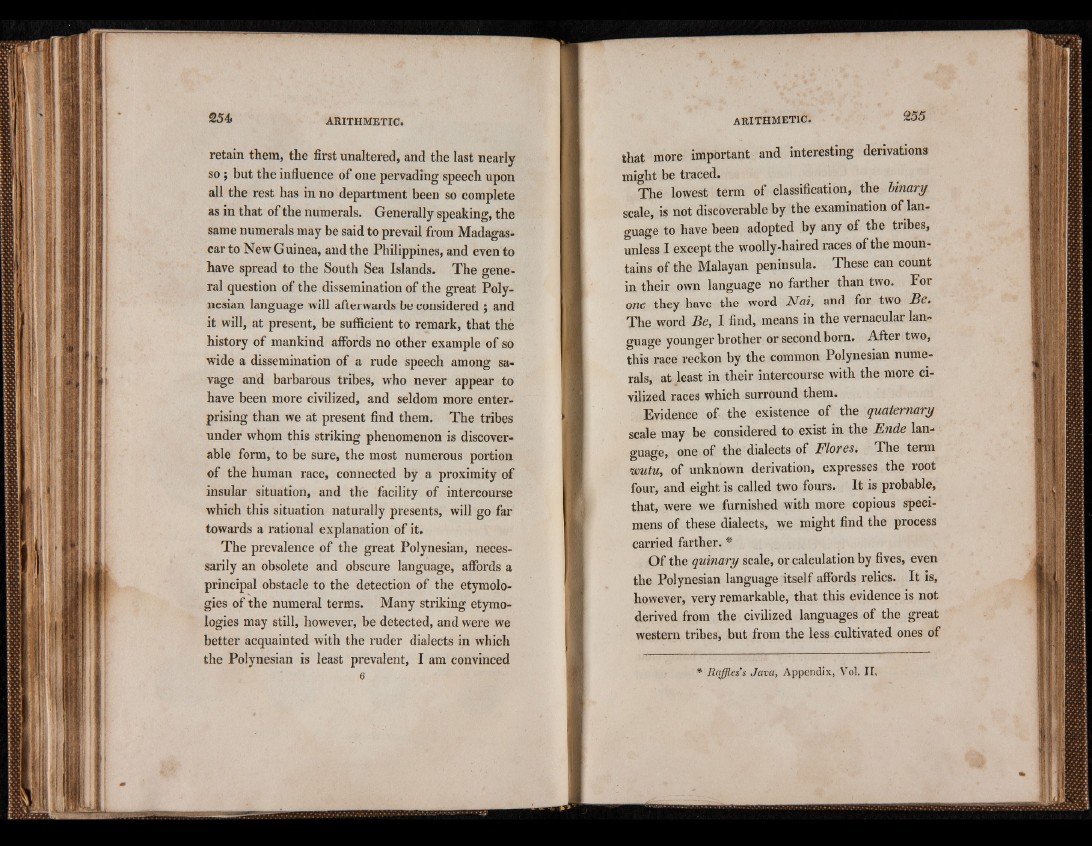
retain them, the first unaltered, and the last nearly
so j but the influence of one pervading speech upon
all the rest has in no department been so complete
as in that of the numerals. Generally speaking, the
same numerals may be said to prevail from Madagascar
to New Guinea, and the Philippines, and even to
have spread to the South Sea Islands. The general
question of the dissemination of the great Polynesian
language will afterwards be considered ; and
it will, at present, be sufficient to remark, that the
history of mankind affords no other example of so
wide a dissemination of a rude speech among savage
and barbarous tribes, who never appear to
have been more civilized, and seldom more enterprising
than we at present find them. The tribes
under whom this striking phenomenon is discoverable
form, to be sure, the most numerous portion
of the human race, connected by a proximity of
insular situation, and the facility of intercourse
which this situation naturally presents, will go far
towards a rational explanation of it.
The prevalence of the great Polynesian, necessarily
an obsolete and obscure language, affords a
principal obstacle to the detection of the etymologies
of the numeral terms. Many striking etymologies
may still, however, be detected, and were we
better acquainted with the ruder dialects in which
the Polynesian is least prevalent, I am convinced
6
that more important and interesting derivations
might be traced.
The lowest term of classification, the binary
scale, is not discoverable by the examination of language
to have been adopted by any of the tribes,
unless I except the woolly-haired races of the mountains
of the Malayan peninsula. These can count
in their own language no farther than two. For
one they have the word Nai, and for two Be.
The word Be, I find, means in the vernacular language
younger brother or second born. After two,
this race reckon by the common Polynesian numerals,
at least in their intercourse with the more civilized
races which surround them.
Evidence of the existence of the quaternary
scale may be considered to exist in the Ende language,
one of the dialects of Flores. The term
wutu, of unknown derivation, expresses the root
four, and eight is called two fours. It is probable,
that, were we furnished with more copious specimens
of these dialects, we might find the process
carried farther. *
Of the quinary scale, or calculation by fives, even
the Polynesian language itself affords relics. It is,
however, very remarkable, that this evidence is not
derived from the civilized languages of the great
western tribes, but from the less cultivated ones of
* Raffles's Java, Appendix, Vol. II.